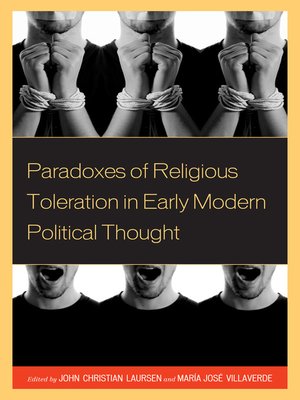
Sign up to save your library
With an OverDrive account, you can save your favorite libraries for at-a-glance information about availability. Find out more about OverDrive accounts.
Find this title in Libby, the library reading app by OverDrive.



Search for a digital library with this title
Title found at these libraries:
| Loading... |
In today's developed world, much of what people believe about religious toleration has evolved from crucial innovations in toleration theory developed in the seventeenth and eighteenth centuries. Thinkers from that period have been rightly celebrated for creating influential, liberating concepts and ideas that have enabled many of us to live in peace. However, their work was certainly not perfect. In this enlightening volume, John Christian Laursen and María José Villaverde have gathered contributors to focus on the paradoxes, blindspots, unexpected flaws, or ambiguities in early modern toleration theories and practices. Each chapter explores the complexities, complications, and inconsistencies that came up in the seventeenth and eighteenth centuries as people grappled with the idea of toleration. In understanding the weaknesses, contradictions, and ambivalences in other theories, they hope to provoke thought about the defects in ways of thinking about toleration in order to help in overcoming similar problems in contemporary toleration theories.







